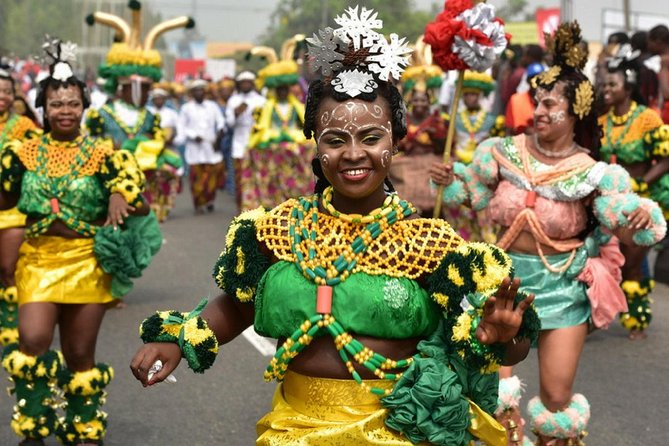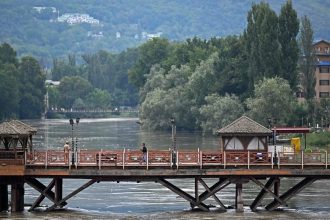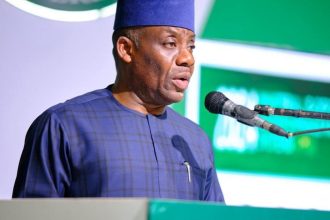The Chairman of Carnival Calabar, Gabe Onah, has called for stronger private sector investment to sustain the popular street party.
Onah made the call on the sidelines of the 21st Akwaaba African Travel Market on Tuesday in Lagos.
The chairman said the annual carnival, which would turn 20 this year, was originally designed as a strategy for community participation and economic development.
“Carnival Calabar must breathe beyond the stranglehold of government.
“For sustainability, the private sector has to take more than a passing interest,” he said.
Onah credited the continuity of the festival to successive governors of Cross River, such as Donald Duke, Liyel Imoke, Ben Ayade, and the present governor, Bassey Otu.
He, however, emphasised that the community buy-in and the welcoming spirit of Calabar’s people were just as significant.
“The smiles of our people, the restfulness of the city and our natural blessings – vegetation, mountains, waterfronts and greenery – are what make Calabar stand out,” he said.
Speaking on Akwaaba’s role in regional tourism, Onah described the event as the melting point for the travel and trade industry.
“In tourism, we will keep saying partners must collaborate, not compete.
“Akwaaba has successfully done this for Nigeria,” he said.
Highlighting emerging trends, he said today’s tourists are digital, unique and global.
Onah emphasised the need to embrace artificial intelligence in tourism promotion.
The chairman added that families were becoming more central to travel decisions, which he said informed the upgrade of the children’s carnival to a junior carnival in Calabar.
Onah also noted that there was a growing demand for takeaways and memorabilia, as visitors seek lasting connections to cultural experiences.
It can be recalled that PUNCH Online reports on January 11, 2025, that the Cross River Tourism Bureau reported that the 2024 Calabar Carnival drew over 300,000 tourists between November 1 and December 31, marking a 42 per cent increase from 2023.
The month-long festival also attracted an estimated 450,000 onsite spectators for signature events such as the Cultural Carnival, Children’s Carnival, and Bikers Carnival, while more than 1.2 billion viewers tuned in globally via DSTV and over 100 million through live online streaming.
Most visitors came from Abuja, Lagos, and Akwa Ibom, which boosted Calabar’s hotel occupancy rate to 68 per cent, with more than 90 per cent of hotels fully booked during the peak period in December.
According to the bureau’s Managing Director, Ekpenyong Ojoi, the festival generated significant economic impact, with hotel bookings valued at N2.79 billion and food sales estimated at N900 million.
Major events such as Funfest and the Calabar Fashion Show brought in N100 million, while nightclubs generated N400 million. Ancillary activities, including online streaming, car rentals, and food and drinks, added another N1 billion, while visitor transportation costs reached N8.87 billion, underscoring the carnival’s growing role as a key driver of tourism and revenue for Cross River State.
Carnival Calabar has shown its strength as both a cultural celebration and an economic driver for Cross River State. But as Chairman Gabe Onah noted, its long-term success will rely on greater private sector involvement to ensure the festival continues to thrive beyond government support.








